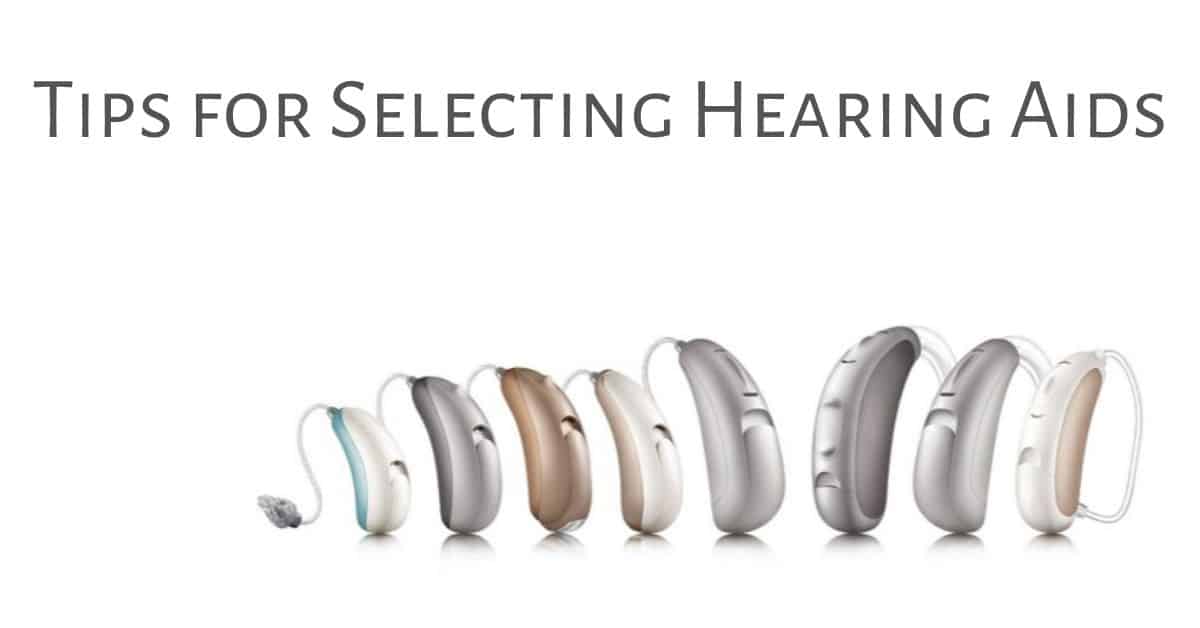- The Future of Hearing Health Research: Promising Breakthroughs - April 18, 2024
- Hearing Health in the Classroom: Strategies for Teachers and Students - April 6, 2024
- The Power of Bluetooth: A New Chapter in Hearing Aids - March 26, 2024
As you decide to take charge of your hearing loss, one of the final steps in your journey is deciding on which hearing aid to choose from.
Shopping for an investment such as hearing aids can be stressful, but it is necessarily so. Most pairs last between 5 and 10 years, thus making the right decision can be crucial.
Luckily, there are some steps you can take, which will make it much easier to choose the right device for you. Whether you’re shopping for the first time or are back on the market for another pair, here are some ideas to make the experience go smoothly.
1. Learn about the basics of hearing aids
You need to know about the basic features of a hearing aid before you understand the benefits that certain features provide.
Although hearing aids look small and insignificant, they are anything but. They’re sophisticated electronic devices designed to reinforce and send specific messages to your brain, helping your mind in its thinking process and voice comprehension.
All hearing aids have the same essential components regardless of design and model: microphone, microchip, amplifier, battery, and receiver. On a basic level, they capture, interpret, and intensify sound from their surroundings. These sound signals are sent to the brain to be processed. Depending on the kind and model of the hearing aid, the configurations of these components vary.
2. Check your hearing.
If you’ve found your hearing has changed, you will learn more about your existing hearing ability through a hearing examination. The results of a hearing test are displayed on an audiogram. If you have a hearing impairment, the form, degree, and configuration are illustrated. All this information is relevant when looking for the right hearing aid.
3. Take a friend along with you.
While you are the only one who is experiencing hearing loss, you shouldn’t go it alone.
A partner, family member, or loved one will help make your hearing loss journey more straightforward. As someone who has noticed your hearing loss from the beginning, they are in a unique position to identify the situations you need for hearing help.
They can also help you decide on the various models. This might be wise to get the help of a friend or family member who has already completed the process of buying hearing aids. They may have indispensable advice for you at this critical moment.
4. Think about your lifestyle
The aim is to find a device that will complement the way you choose to live. Think about the kind of things you enjoy – so that you can limit yourself to devices appropriate for your lifestyle.
- Those with an active outdoor life may want to consider dirt and moisture-resistant hearing devices, or ones that have wind noise reduction features.
- If you frequently attend work conference calls or want to talk on the phone to your granddaughter, direct Bluetooth streaming may be a priority.
- If you travel a lot, you will benefit from lithium-ion rechargeable technology. This allows you to run your hearing aids for an entire day on an overnight charge, including any audio streaming you decide to do.
5. What type of hearing aid do you want?
There are so many different kinds of hearing aids. Many people prefer small and discreet hearing aids because they are harder to spot. Others value the increased battery life, more varied features, and ease of operation of the larger models. There is no right answer to this dilemma, and the only person who can make the decision is you.
6. Find the right hearing aid provider
The value you get from your hearing aid depends on your provider’s expertise and abilities. Some see the hearing aid provider as equal in importance to the model of hearing aid you decide on.
Audiologists and audiologists are licensed to offer hearing aids, but audiologists may provide a wider variety of hearing services. For example, here at A&A Audiology, we perform Real-ear measurements. This gold-standard fitting method has been shown to improve hearing aid satisfaction rates but is performed only by 30 percent of all hearing aid providers.
We’re proud to have a resident audiologist here at A&A Audiology and can’t wait to help you select the right hearing aids for your lifestyle, budget, and hearing loss needs. Contact us today to set up a consultation.

